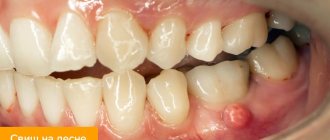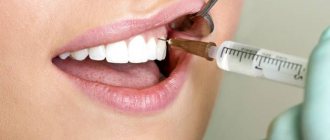A feeling of heaviness in the stomach, weakness, nausea, belching and bitterness in the mouth are symptoms familiar to everyone.
These unpleasant sensations cause pain, other discomfort and can ruin your whole day. Short-term attacks of nausea can be stopped with medications and folk remedies. If a bitter taste in the mouth, belching and vomiting do not stop for several days or weeks, there is reason to think about health problems.
Symptoms
Bitterness in the mouth can manifest itself in different ways, for example:
- after overeating and eating certain foods - indicates the reflux of bile into the esophagus and diseases of the bile ducts,
- aftertaste after taking medications means a disruption of the normal microflora, a negative effect on the liver and the destruction of beneficial bacteria,
- after sports training - speaks of liver pathologies.
Bitterness can occur at different times of the day, after physical activity and during the abuse of bad habits. Often the symptom is accompanied by nausea and vomiting, dizziness, heaviness in the side and abdominal pain, white coating on the tongue and a feeling of bloating, heartburn and belching, dry mouth. At the appointment, you need to inform the doctor in detail about each sign.
3. Symptoms and diagnosis
Bitterness in the mouth is the only and isolated symptom very rarely (in fact, never). It is extremely important to monitor and then inform the doctor about what other symptoms the bitter taste is combined with, and on what situations and factors its appearance depends. Thus, accompanying symptoms most often include heartburn, belching, nausea and vomiting, all kinds of pain and discomfort in the abdominal area, flatulence, fever, as well as that same “general malaise.” Factor-conditions can be the time of day (for example, bitterness in the morning, characteristic of hepato- and cholecystopathology), food intake in general and certain foods in particular, physical activity, regular medication intake, etc.
Bitterness in the mouth can occur sporadically, for easily explainable situational reasons (for example, food poisoning or gross abuse of fatty foods), and quickly pass without a trace. But if it appears frequently or becomes constant, you should definitely consult a doctor: timely treatment can literally be life-saving in terms of early diagnosis of, say, cancer.
It is most reasonable to start the examination with a gastroenterologist: if necessary, having ruled out “his” pathology and suggesting the most likely “target” of the lesion, he will certainly refer the patient to the appropriate specialized specialist.
It is impossible to indicate the standard or most typical diagnostic methods in this case: everything is determined by the specific clinical case. Depending on the situation, you may need almost any combination of methods from the rich arsenal of modern diagnostics: radiography, endoscopy, ultrasound and tomography, laboratory analyzes of biological fluids (clinical, bacteriological, biochemical, immunological, etc.).
About our clinic Chistye Prudy metro station Medintercom page!
Which doctor treats bitterness in the mouth?
First of all, bitterness in the mouth is considered as a symptom of gastroenterological disorders, so when the first signs appear, you need to make an appointment with a gastroenterologist.
To make an appointment with a doctor, choose any method:
- call the clinic +7 (495) 103-99-55,
- order a call back,
- leave a request for an appointment using a convenient form on the website:
Often people do not pay attention to bitterness in the mouth, explaining the occurrence of the symptom with overeating, an uncomfortable position in bed and some other reasons.
IMPORTANT! Rarely does anyone think that bitterness in the mouth is a signal indicating the development of serious pathology of the liver and gastrointestinal tract.
If you have been experiencing this symptom for a long time, do not engage in self-diagnosis and self-medication - make an appointment with a specialist at the Kuntsevo Treatment and Rehabilitation Center! An experienced gastroenterologist will collect anamnesis, complaints, conduct an objective examination, and refer you for laboratory and instrumental diagnostics to understand the cause of the pathology.
SIGN UP
When to see a doctor
Bitterness in the mouth and nausea are a reason to consult a doctor
For some people, bitterness in the mouth and nausea are a periodic routine of life that does not cause any panic at all.
In part, of course, this is correct - such illnesses should not cause panic, but it is also unacceptable to leave them unattended.
If symptoms of this kind appear for the first or second time, self-medication is allowed. You can be treated at home for no more than 5-7 days, based on the results of which it is worth drawing a conclusion: whether the therapy is effective or not.
In the case where there is an effect, a visit to a gastroenterologist is not necessary. Under other circumstances, it is better not to hesitate and go to the clinic for examination.
In addition, pathologies that manifest not only with bitterness in the mouth and nausea, but also with the following symptoms deserve a mandatory visit to the hospital:
Treatment methods
Basically, the treatment of bitterness in the mouth comes down to taking medications. The specialist selects complex therapy based on the results of tests and instrumental examinations. The gastroenterologist identifies one of three problems:
- Liver disorders. Means are prescribed to stabilize the operation of the “filter”,
- Digestive tract dysfunction. Drugs that affect the digestive system normalize the work
- Uncontrolled bile production. Eliminated by drugs that affect the level of secretion, for example, anticholinergics.
Causes of bitterness and nausea
Bitterness in the mouth and nausea often occur after eating
When considering the mechanism of bitterness and nausea, it is first worth paying attention to the functions of the liver.
The fact is that it is this organ that not only filters the substances entering the body for their further removal, but also synthesizes a considerable amount of organic materials that are necessary for the stable functioning of the body.
One of these, of course, is bile, which enters the gastrointestinal tract (hereinafter referred to as the GIT) and participates in the digestion process.
Bile acids perform a colossal range of functions - from breaking down fats to stimulating the work of enzymes, but they taste unpleasant and in large quantities are dangerous for the soft tissues of the digestive tract and nasopharynx.
To avoid bile from entering these cavities of the body, human nature requires the presence of a special sphincter, which limits the acidic environment of the stomach from more sensitive areas.
Disturbances in the functioning of this muscle, caused by gastrointestinal pathologies, invariably provoke the release of bile acids into the upper digestive tract and nasopharynx, which ultimately manifests itself in an unpleasant bitterness in the mouth.
Why do we need to treat bitterness in the mouth?
Since an unpleasant taste in the mouth is a symptom of some pathology, a comprehensive examination is needed, without which it is impossible to establish a diagnosis. Our clinic has the latest equipment for ultrasound diagnostics of the liver and gallbladder, gastroscopy, etc., which help identify the pathological process in a short time. Our own laboratory allows you to get test results within a few hours. It is the quick examination process that attracts many Moscow residents to our clinic, as well as experienced, qualified staff ready to help every patient.
Causes of bitter taste in mouth
Bitterness in the mouth can appear due to diseases of the digestive system, teeth and gums, due to changes in hormonal levels, taking certain medications and for other reasons (Fig. 1). At the same time, the accompanying symptoms and conditions under which a person feels a bitter taste in the mouth will be different.
Figure 1. Some causes of bitterness in the mouth. Source: MedPortal
Poor quality food
Foods cooked with a lot of oil, fat or burnt can cause a bitter taste in the mouth. Sometimes the bitter taste is associated with drinking black coffee or very strong tea. It can also appear if a person has eaten sunflower seeds or nuts. The bitterness will go away if you drink cool water, but a slight unpleasant aftertaste may persist for a while. If the bitter taste comes from food, there will be no other symptoms (pain, indigestion).
Age-related changes
With age, a person's taste perception gradually changes. Older people are less able to discern tastes, but may still experience bitterness. This is associated with a number of other health changes, for example, decreased saliva production, dry mucous membranes, and a gradual deterioration in oral health.
Smoking
If a person smokes frequently, they perceive the taste of food less well, and this can increase the bitter taste in the mouth. Also, bitterness in the mouth of smokers may be associated with the taste and smell of tobacco smoke. The resins contained in it linger on the mucous membrane of the oral cavity and settle on the surface of the tooth enamel. This is the cause of bad breath, deteriorating dental health and the associated persistent bitter taste. You can beat it with chewing gum or mints, but it is better to quit smoking or at least reduce the number of cigarettes you smoke.
Pregnancy
In the first trimester, bitterness in the mouth may appear along with other symptoms of toxicosis. It usually worsens with nausea or after vomiting. Fluctuations in estrogen levels can affect the perception of tastes. Cholestasis of pregnancy can also cause bitterness. This is a relatively rare syndrome that develops in the third trimester and is characterized by pruritus and cholestatic jaundice. Cholestasis in pregnancy resolves after childbirth and is considered a relatively harmless condition, but if symptoms appear, you should inform your obstetrician-gynecologist.
Functional dyspepsia
Functional dyspepsia is a disorder in which a person does not have severe diseases of the digestive system, but experiences pain, early satiety and a feeling of fullness after eating, and a burning sensation in the upper abdomen. In this condition, the feeling of bitterness occurs due to slow digestion of food. It may be accompanied by abdominal cramps and other unpleasant sensations. Functional dyspepsia is associated with a number of factors, including stress, smoking, heredity, and recent infectious diseases. You can relieve the bitter taste in your mouth by drinking water with lemon juice. If the condition does not go away or the pain intensifies, diarrhea, vomiting or other severe symptoms appear, you should immediately consult a doctor.
Hepatitis
Bitterness in the mouth is the initial symptom of hepatitis and accompanies liver inflammation. In this case, the bitter taste appears in the morning, immediately after waking up or 30-60 minutes after eating. This is accompanied by heaviness in the right hypochondrium, pain, nausea and vomiting containing bile. With toxic hepatitis, symptoms appear for a short time and disappear after starting treatment. With viral hepatitis, bitterness in the mouth persists almost constantly.
Pathologies of the gastrointestinal tract
If food digestion is impaired, an unpleasant taste appears in the mouth. The sensation of bitterness may occur due to a change in taste perception. It occurs, for example, with pancreatitis and may be accompanied by vomiting and the appearance of a yellow or grayish coating on the tongue. A common cause of bitterness in the mouth is gastroesophageal reflux disease (GERD). In this disease, stomach contents (stomach juice and food particles) regularly back up into the esophagus, causing heartburn and a bitter taste in the mouth (video 1).
Video 1. Symptoms of gastroesophageal reflux disease.
If a person has chronic gastritis or duodenitis, a bitter taste appears when he violates the recommended diet. In diseases of the digestive system, a feeling of bitterness in the mouth is always associated with food intake (appears some time after it).
Biliary system damage
A bitter taste may appear in the mouth due to cholelithiasis, cholecystitis, cholangitis and other diseases of the biliary system (gall bladder and bile ducts). At first, bitterness may appear only after drinking alcohol, fatty or fried foods.
“Burning in the mouth, tongue covered with a yellow coating, discomfort, and so on. In 95% of cases, this is due to the reflux of bile from the duodenum into the stomach. In the stomach, this bile is mixed with hydrochloric acid, thrown into the esophagus and then into the oral cavity.”
Karasev Ivan Alexandrovich
expert
FSBI "N.N. Blokhin National Medical Research Center of Oncology", endoscopist
Without treatment, the condition will gradually worsen. The bitter taste will bother you more often and last longer. Along with it, nausea, pain in the hypochondrium on the right side, and stool disorders may occur. The feeling of bitterness becomes permanent if a severe inflammatory disease of the gallbladder or bile ducts develops (cholangitis, cholecystocholangitis, cholecystitis and others). Also among the possible causes are biliary dyskinesia, due to which the outflow of bile is disrupted, and cholelithiasis. Less commonly, the disorder is associated with parasitic liver disease (giardiasis, opisthorchiasis or echinococcosis).
Dental diseases
The feeling of bitterness can be caused by the presence of tartar, caries, gingivitis or other dental problems. There are usually other symptoms:
- toothache;
- enamel sensitivity (reaction to cold or hot, sweet, sour);
- bleeding gums;
- tooth mobility;
- gums look red or swollen;
- There is a noticeable plaque on the enamel that cannot be removed by regular teeth brushing.
Problems with the health of teeth and gums may be associated with xerostomia, a condition in which insufficient saliva is produced and the mouth constantly feels dry. This increases the risk of tooth decay and gum disease, and causes an unpleasant odor in the mouth, which is perceived as bitter. Xerostomia can occur due to smoking, mouth breathing, aging, diabetes, or autoimmune diseases. This condition requires consultation with a dentist.
Sometimes bitterness in the mouth appears after dental treatment. This may be due to the use of certain medications or materials, or the installation of dentures, braces and other structures in the mouth. If the bitter taste does not go away or persists for several days, you should contact your dentist.
Neurological disorders
The mouth may taste bitter due to damage to the brain structures that process taste information. In this case, taste perception is disrupted: for example, sour foods may seem sweet, salty foods may seem sour, and a person may not perceive some tastes. This can occur after a traumatic brain injury or stroke. Sometimes taste disturbances are associated with Alzheimer's disease and other age-related diseases in which neurodegenerative processes occur.
Complications of pharmacotherapy
There are more than 250 types of medications that can cause taste disturbances, including the appearance of bitterness in the mouth. This can happen if the drug affects the taste buds of the brain, if part of it remains in the saliva and changes its taste, if the drug suppresses the microflora, which is why fungal diseases develop. Among the drugs that can cause a bitter taste in the mouth:
- antibiotics;
- medications for arrhythmia, diuretics, statins and other drugs used for cardiovascular diseases;
- drugs used in chemotherapy;
- muscle relaxants, migraine medications and other neurological drugs;
- neuroleptics, sedatives, hypnotics, antidepressants;
- non-steroidal anti-inflammatory drugs;
- bronchodilators;
- antihistamines;
- antiviral drugs;
- nicotine replacement therapy products.
Rare causes
Sometimes bitterness in the mouth becomes a symptom of endocrine disorders: diabetes mellitus, hypothyroidism, hypocortisolism and others. It can accompany some cancers and respiratory diseases. Rarely, the cause is an infection of the salivary glands. A bitter taste may occur in cases of poisoning due to accidental ingestion of a toxic substance. In all these cases, the appearance of bitterness is accompanied by other symptoms of the underlying disease.
Solution
Treatment of bitterness, nausea and other associated symptoms depends on the cause of their occurrence. It happens that it is enough to adjust the diet, not overload the digestive organs and establish a drinking regime, and the discomfort disappears by itself.
Diagnosis of the causes of nausea and bitterness in the mouth involves taking a medical history, analyzing complaints and examining the patient, as well as a whole range of instrumental and laboratory tests
For diseases of the pancreas, intestines, and duodenum, patients are prescribed the following medications:
- Pancreatin (enzymatic drug, has a positive effect on digestive function);
- Furazolidone (antibacterial tablets, taken after meals, normalize the state of intestinal microflora);
- Omeprozole is recommended for ulcerative lesions of the duodenum and stomach;
- the medicinal group of hepatoprotectors allows you to prevent further pathological changes in liver cells and restore already “damaged” hepatocytes.
Enterosorbents (drugs that bind and remove toxins from the body), as well as probiotics (“useful” intestinal bacteria) are integral components of drug therapy for bitterness in the mouth and attacks of nausea. For dyskinesia and other problems with the gallbladder or liver diseases, it is useful to take choleretic herbal teas (sold in pharmacies).
Important! In some clinical cases (for example, with cholelithiasis), patients with nausea, bitterness in the mouth, and abdominal pain may require surgical intervention.
Prevention
To avoid discomfort, it is recommended, first of all, to make adjustments to your own diet and diet. So, it is better to give up sweets, baked goods, fatty and fried foods, alcohol, as well as products containing large amounts of dyes, preservatives and other synthetic additives. The daily menu should be filled with fiber, cereals, lean fish, meat, vegetable broths - such a diet will restore the “affected” functions of the gastrointestinal tract as soon as possible.
Since a bitter taste in the mouth often “haunts” smokers and those who abuse alcohol, giving up bad habits is also on the list of mandatory preventive measures. The daily fluid intake (pure water, natural juices, fresh compotes, fruit drinks) should be 2–2.5 liters. This will ensure healthy functioning of the digestive tract and have a positive effect on metabolism in general.
To combat nausea and bitterness, patients are prescribed a diet, symptomatic drug treatment, and, if indicated, surgery.
Timely treatment of chronic and acute diseases (primarily infectious lesions of the oral cavity, upper respiratory tract, gastrointestinal tract) will also prevent the occurrence of discomfort. Due to the fact that nausea and bitterness in the mouth can have not only physiological (overeating, pregnancy, intoxication), but also pathological causes (diseases of the liver and other digestive organs, dental problems), if discomfort persists for a long time, you should seek help from a doctor , be examined and undergo appropriate treatment.
Why is there a problem?
Temporary nausea and bitterness in the mouth, as a rule, are nothing more than the result of overeating the day before. So, these symptoms and weakness in the morning can be provoked by alcohol, peppery, fatty, fried foods eaten for dinner, marinades, smoked foods and other “aggressive” foods.
Nausea and bitterness in the mouth may have more serious (pathological) causes. The first “suspect” is biliary dyskinesia - muscle spasm leading to disruption of bile outflow. Bile stagnates, from time to time it is thrown into the esophagus along with particles of undigested food, causing discomfort in the oral cavity.
Other causes of bitterness in the mouth and nausea:
- infectious diseases of the upper respiratory tract;
- ulcers of the stomach, duodenum;
- inflammatory processes in the pelvic organs;
- bitterness in the mouth is a classic sign of almost all liver pathologies;
- long-term use of various groups of medications (primarily antibiotics);
- acid reflux (occurs also during pregnancy due to weakening of the gastric sphincter due to increased levels of prolactin in the blood).
If the patient feels sick, has a bitter taste in the mouth and has diarrhea, this set of symptoms may indicate poisoning (general intoxication) of the body with salts of heavy metals - cadmium, copper, lead, mercury. Your health may be aggravated by severe headaches, bloating, dry mouth, dizziness, and increased body temperature.
Hormonal changes in the female body during pregnancy are a common cause of the appearance of a bitter taste on the oral mucosa
Liver diseases that most often provoke nausea and bitterness in the mouth:
- hepatosis (dystrophic changes in hepatocytes - liver cells - under the influence of toxins that lead to dysfunction of this organ);
- hepatitis (liver inflammation of viral origin);
- cirrhosis (irreversible destruction of organ cells due to the replacement of parenchymal tissue with fibrous tissue).
Belching, diarrhea, bitter taste in the mouth, nausea and weakness are indicators of helminthiasis (parasitic activity of round and flatworms in certain internal organs). Nausea, heartburn, bitterness in the mouth in the morning are “sure signs” of pregnancy in women. The appearance of discomfort is associated with a weakening of the gastric sphincter and, as a result, the release of acid into the esophagus, as well as (at a later date) the pressure of the enlarged uterus on the stomach.
The constant presence of a bitter taste in the mouth can be a symptom of a number of dental diseases:
- stomatitis (viral, bacterial damage to the mucous membrane);
- glossitis (inflammation of the tongue);
- gingivitis (inflammatory process affecting the gums);
- The cause of discomfort may also be improperly fitted dentures or an allergic reaction to their metal elements.
Poor nutrition (unbalanced diet, an abundance of fatty and fried foods, alcohol abuse) is a factor that causes the development of diseases of the digestive tract and the appearance of dyspepsia (nausea, bitterness in the mouth, diarrhea, abdominal pain)
A bitter taste in the mouth and nausea can also be due to a violation of cerebral circulation (then the problem has a neurological basis), vascular spasm is certainly accompanied by the appearance of these symptoms, as well as general weakness, dizziness, fainting conditions, etc.
Causes
It is worth noting! The first reason for a bitter taste in the mouth after vomiting is the abundance of fatty and heavy food the day before, including bitter food. This could be onions, garlic, spicy seasonings, alcohol.
After such a “belly celebration,” poisoning often occurs, and the contents of the stomach come out.
Poisoning with subsequent vomiting and bitterness in the mouth can also be due to rotten fruits and vegetables (for example, plums).
Diseases that cause bitterness
But in most cases, a bitter taste in the mouth is associated with the release of bile into the upper gastrointestinal tract. The reasons may be:
- impaired motility of the bile ducts and, as a result, stagnation of bile;
- cholecystitis;
- cholelithiasis;
- liver diseases (hepatitis, cirrhosis);
- liver failure.
Note! With these problems, accompanying symptoms are aching or dull, weak pain in the right side.
Possible fever (acute cholecystitis, cholelithiasis), muscle pain, yellowing of the skin and sclera.
You may experience a metallic taste in the mouth (squeezing of the ducts),
light-colored loose stools, dark urine, and dry mouth.
In advanced conditions, surgery to remove the gallbladder - cholecystectomy - may be required.
Inflammation of the liver tissue
The condition, known as Botkin's disease, begins with heat and bitterness in the mouth.
If nausea and vomiting appear, this may indicate progression of the disease and the development of steatosis, liver cirrhosis, and cholelithiasis.
Problems with the gastrointestinal tract
Stay up to date! The pathology is not always associated with the liver and biliary tract, and sometimes bitterness is associated with the intestines or stomach.
Often, the symptom appears during exacerbation of gastritis, duodenal ulcer, colitis, gastric dyspepsia, reflux or the presence of the bacterium Helicobacter pylori .
Typically, problems with the digestive tract are accompanied by a white coating on the tongue, heaviness and pain in the abdomen after eating, flatulence, bloating and upset stool.
Pathologies of the pancreas associated with a lack of food enzymes manifest themselves in the form of heartburn, nausea, heaviness after eating, and a bitter or bitter-sour taste in the mouth.
Vegetative-vascular dystonia
Vomiting and subsequent bitterness in the mouth may indicate vegetative-vascular dystonia. When the disease worsens, irritability, sleep problems, and arrhythmia are present.
Keep in mind! There may be a slight increase in temperature, headache, heaviness in the stomach, dizziness, digestive problems, darkening of the eyes.
Other diseases
Continuous bitterness in the mouth may indicate bladder disease .
Sometimes vomiting and bitterness in the mouth appear against the background of a stable decrease in blood pressure , or hypotension.
Hypotension is especially often accompanied by symptoms reminiscent of poisoning (heaviness in the stomach, sour belching, decreased appetite, bitterness in the mouth), usually in women 30-40 years old.
If vomiting occurs during or immediately after an acute respiratory infection, one may suspect the development of ENT diseases and damage to the throat with purulent foci.
With mechanical irritation of the throat, the formations can be damaged and their contents can come out. Then the bitterness in the mouth is present until the first brushing of the teeth.
Treatment
Help before diagnosis
To reduce discomfort during diagnostic procedures, it is necessary to reconsider the diet: switch to frequent small meals, eliminate fatty foods and alcohol. Careful oral hygiene with the help of toothpastes, dental floss, and irrigators is important. Doctors advise stopping smoking or reducing the number of cigarettes smoked per day as much as possible.
If you have a strong bitter taste, you should regularly rinse your mouth with boiled water and lemon juice; at work, you can eat a mint candy or a slice of lemon. The feeling of bitterness helps to reduce the rational drinking regime with consumption of at least 1.5 water per day. If the symptom is accompanied by severe abdominal pain, repeated vomiting or other dyspeptic disorders, you should immediately visit a doctor.
Conservative therapy
Therapeutic measures are selected taking into account the cause of bitterness in the mouth. An important component of therapy is a special diet that improves digestion processes, and physiotherapy techniques are also actively used. The main direction is drug etiotropic and pathogenetic therapy. Most often used:
- Choleretic agents
. Prescribed drugs that improve the colloidal properties of bile (choleretics) and stimulate its excretion through the bile ducts (cholekinetics). Medicines are recommended for cholecystitis and cholangitis to normalize digestive function. - Antispasmodics
. The products relax the smooth muscles of the gastrointestinal tract, relieve pain in the abdomen, which often occurs simultaneously with a bitter taste. Analgesics from the group of non-steroidal anti-inflammatory drugs are indicated for the treatment of inflammatory diseases. - Enzymes
. Combined preparations of pancreatic enzymes and bile acids stimulate digestion, due to which the bitterness in the mouth disappears. For hepatitis and infectious liver lesions, they must be combined with hepatoprotectors. - Antihelminthic drugs.
Recommended for helminthiasis that affects the bile ducts and liver tissue - opisthorchiasis, echinococcosis. To eliminate giardiasis, specific antiparasitic medications are effective. - Antiviral agents
. When treating hepatitis caused by viruses B or C, separate protocols are used that involve the use of inhibitors of the assembly and formation of viral particles. Pegylated interferons are also prescribed.








